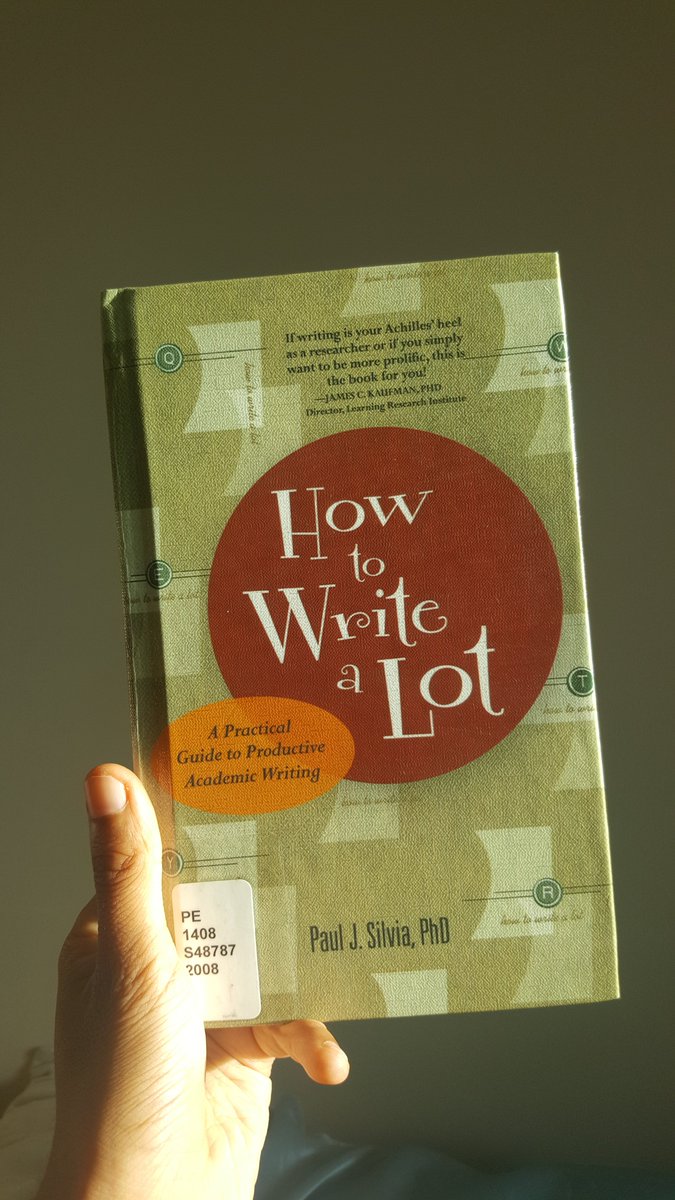@AcademicChatter @GradWriteSlack #AcademicChatter #phdchat

a) Projects with deadlines (like for classes and seminars)
b) Curricular writing (i.e. your thesis)
c) Professional publications
d) Any other writing projects
a) Set concrete short-term goals and monitoring progress
b) Stick to writing goals
c) Reinforce good writing habits and intervene when someone is consistently not meeting their goals


